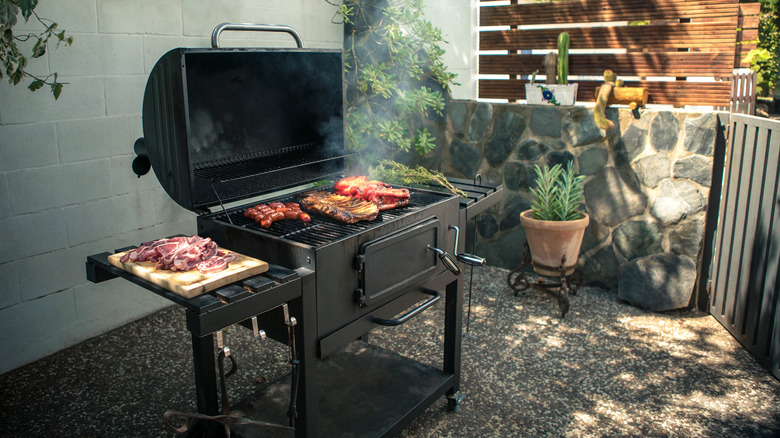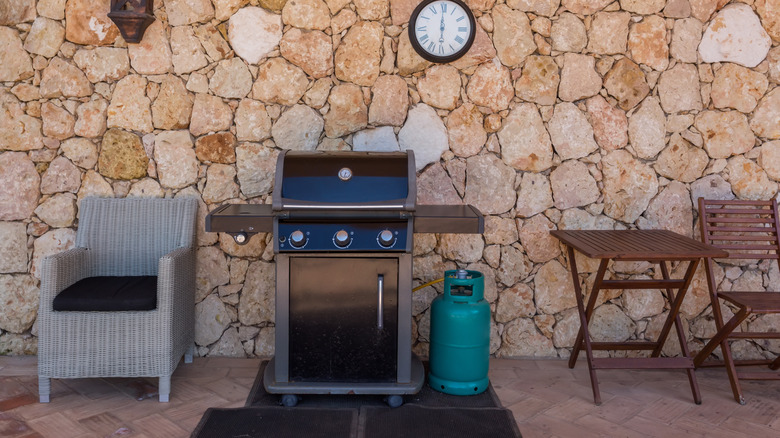Why It's Safer To Grill With Propane Than With Natural Gas
As summer unrolls and barbecued potlucks begin to get organized, grillers everywhere have a crucial choice to make: Will they heat their grills with natural gas or propane?
Truthfully, both options are viable cooking methods and are safe if handled appropriately, but they are also very different and have qualities that are uniquely their own. Natural gas, for one, is quite a bit cheaper than propane; Oftentimes your house will have a mainline that provides gas to things like your stove top. But while the gas itself is cheaper, installing a connection to your grill could cost quite a bit of money, according to Food Fire Friends.
From a safety perceptive, once gas lines are connected properly and the grill is operated properly, natural gas has no glaring issues. According to Climate Care, natural gas is considered ever so slightly safer because of its tendency to dissipate into the atmosphere a bit quicker than propane.
Why choose propane?
Propane comes in tanks that can be purchased from many local stores and be transported safely to your home. This makes the obtaining and installing processes for propane quite a bit cheaper than those for natural gas, although the propane itself is more expensive.
According to Food Fire Friends, propane is more energy efficient than natural gas, burning hotter for longer on less fuel. Also, propane burns "cleaner" than natural gas, releasing smaller amounts of carbon emissions, via Paraco, into the air during combustion, making it environmentally safer and potentially better for the lungs at the barbecue.
Another "safety feature" unique to propane is its flammability range, or temperature at which it will ignite. According to Ace Robbins, when combined with air, propane will only ignite at temperatures upwards of 920 degrees Fahrenheit. Given that ignition is so difficult to achieve, propane is the fuel of choice if you only want to set fire to things you're absolutely positivity sure you want to set fire to.

